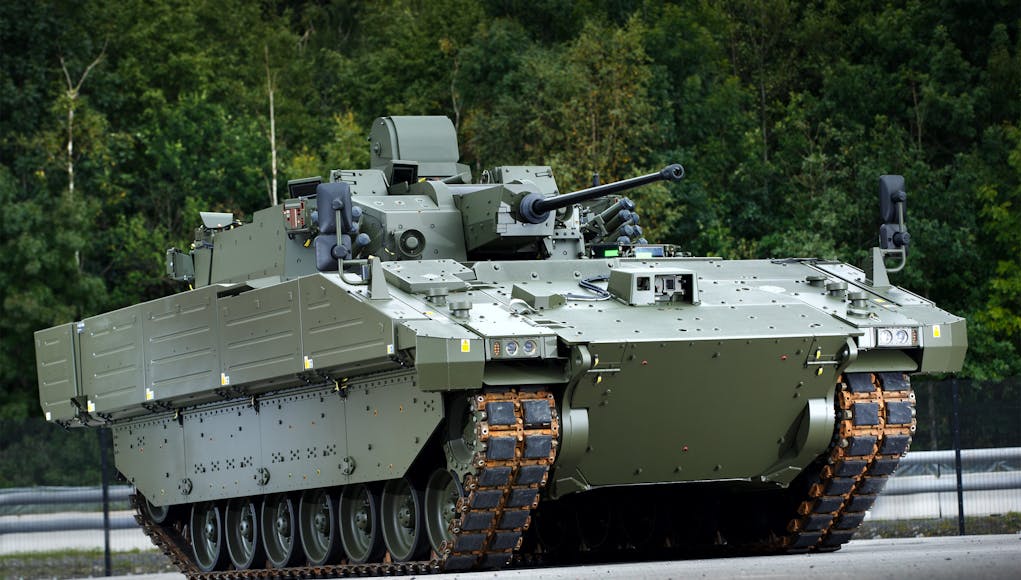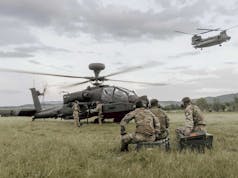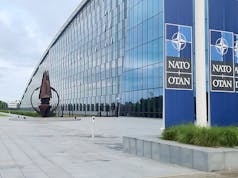The Public Accounts Committee has published a report titled ‘Improving the performance of major defence equipment contracts’.
You can read the report by clicking here, but here’s the summary.
“There have been numerous reviews of defence procurement over the past 35 years, which have provided the Department with opportunities to take stock and learn from experience. We are therefore extremely disappointed and frustrated by the continued poor track record of the Department and its suppliers—including significant net delays of 21 years across the programmes most recently examined by the National Audit Office—and by wastage of taxpayers’ money running into the billions.
The Department is in a disadvantageous position because it relies on a limited specialist supplier base to meet its needs and at times lacks the skilled personnel to effectively manage the performance of these suppliers. Overall, we are very concerned that the Department—and ultimately the taxpayer—bears too much of the financial risks for failure.”
The report itself has a list of issues and recommendations, this one highlights that the Public Accounts Committee believe the Ministry of Defence do not ‘learn from mistakes’.
“The Department continually fails to learn from its mistakes. The Department has been delivering equipment programmes for decades and has overseen many expensive failures. There have been at least 13 formal reviews of defence procurement policy over the last 35 years which have provided the Department with opportunities to take stock and learn from experience.
We were therefore shocked to learn that the Department had only established a central register of learning from experience (LFE) in December 2020. Experience shows that there is a need for reflection and openness earlier in the process to avoid further catastrophes like Ajax.
This does not convince us that the Department aspires to achieve a radical step-change in performance. We are encouraged by the Department’s Strategic Partnering Programme (SPP) initiative launched in 2018 to transform its relationships with industry. We recognise its strategic intent, but are disappointed with its lack of ambition in forecasting only £160 million in savings over the next ten years—less than 0.1% of its forecast Equipment Plan spend.
The Department told us that it expects efficiencies to amount to hundreds of millions of pounds as the programme matures, but until it develops scalable plans and can clearly attribute improvements to its interventions, it is cautious about the scale of potential success.”
They recommend the following:
“The Department should provide the committee with a clear plan on how it will draw on LFE and how its SPP and associated initiatives will generate the level of savings that would be expected from work that is intended to transform the procurement of hundreds of billions of pounds of equipment.”














The continuing political drive to privatise and devolve military capability to the private sector seems only to deprive the military of the talent and experience to specify & manage major procurement programmes. Think of the opportunities to add capability that would have been added by efficient procurement. The recent decision to retire the Hawk T1 without replacement because modern “synthetic” training is available has led this week to MoD seeking another private partner to provide the capability currently provided by 100 squadron, a decision that totally ignores the training opportunities derived by having serving aircrew on both sides of the equation. Time for a major rethink perhaps or will that be politically unacceptable? After all Boris not that long ago announced an end to defence cuts before sneaking out cut after cut and introducing capability gaps by retiring assets years before their replacements are available (Sentry / Wedgetail for example). Oh well rant over.
The Defence Support Group lost many of its skilled workers and management in the transition to be privatised through voluntary redundancies. Productivity is no lower than under the MOD, records show it only made a profit in one year since the sale !
Well said and all 100%
To be fair, it has been getting better in recent years, as apart from Ajax there hasn’t been that many cock-ups since Nimrod/Astute in 2000’s and 2010’s. P-8 on time, budget as is the most recent Astute’s – all so far under-budget. Take a look at the recent missile procurement: Sea Ceptor delivered on time, under budget, a good and reliable, cheap and effective system and has achieved export success. Marlet, Brimstone, Storm Shadow similar – Sea Venom was made with the French so slightly delayed. So I think the RAF/RN have learnt to some degree, just need to work on the Army and its ‘procurment’
And the Italians, a lot of the really cool stuff inside Aster is Italian.
MBDA is getting really good at reusable modular technology, such as SPEAR 3/EW reusing a lot from Brimstone.
On the Type-45s they’ve replaced Aster-15 with Sea-Ceptor, which is based on ASRAAM, so that they can fill all of the Sylver silos with Aster-30.
Our naval radar systems are second to none.
A lot of clever reuse is coming into it’s own via the FCAS (Tempest) project, MBDA’s proposed weaponry.
This next bit is speculation but it looks to me like there’s a block of ‘swarming’ code that’s being reused across MBDA missile systems,
Enabling heterogeneous missile systems to smartly work together without having to hand code every combination and every scenario into each type of weapon.
A few more army cock-ups/disappointments/capability gaps than Ajax. Warrior upgrade cancelled, and so the fleet will deteriorate and be withdrawn (to be replaced one day with a possibly inferior replacement Boxer)). CR2 upgrade (aka CR3) only to be done to 148 tanks out of the over 400 CR2s that we previously bought and FOC is not till 2030. Still no proper upgrade for AS90 – and its replacement seems very distant. Still no replacement for ancient Light Gun. No light mortar in service. No heavy (over 81mm) vehicle mounted mortar in service. No truck-mounted arty in service. No upgrade for CRARRV. I am sure the list is much longer than this!
Especially as regards the Army.
I agree. Also it takes so long for them to get started/build projects. There are massive gaps in army capability aswell… artillery and mobile fires come to mind.
I agree the Army has a issue with procurement. However, the Army has had this issue since the end of the 1980s. Until then the Army was almost like two Armies. The first with heavy equipment designed to fight on the German plains, the second was as a light rapid reaction force for world wide deployment. The Army numbers meant that we could have the force split in this way, 1 Br Corp for the Russian hordes the rest for world deployment. The first Gulf war was in many ways suited to 1 Br Corp, the German plains or an open desert. Yet during Iraq/Afgan A Challanger to mop up a terrorist or a Lany to take on a IED was not a good idea, so in comes new protected mobility kit, but they were more of a knee jerk response, were they really what the Army needed or wanted.
So the Army was caught between to styles of war peer-peer or light mobile small units. With the small manpower available someone must ask the question for what is the Army to be used, to face off a resurgent Russia on the fields of Europe or as a counter terrorist/gurilla force. The first means heavy equipment, the second light and mobile. Or do we go back to the 1980s where we could field three heavy divisions in Germany and light units based in the UK for deployment. Until that question is answered the equipment buy is going to be a mess as we don’t have the formations to equip for everything that we might face and the government does not really know what they want the Army to do.
I for one would bring front line Army strength back up to 100-120,000, go back to having three 10,000 man heavy divisions for Europe or a First Gulf situation, a new 1st Army Group. The main fighting equipment for the Heavy Divs would be the MBT, Warrior replacement, Mobile Artillery, GMLRS, GMLRS-ER, PrSM, Short mobile and Medium static range Anti Air. Signals, Logistics, Engineers, Medics etc would be added. That would mean as a combined HD a troop stregth of about 14,000.
Then I would have battlegroups based on the Boxer in all varients such as Skyranger mobile and static air defence (in the static role the system could be a combined gun-missile combination), RCH155mm, C3105 a 105mm tank gun, infantry support, personnel carrier etc, for World Wide rapid deployment for example for a Falklands situation or Afgan type Issue, UN deployment etc. Each BG would be 1,000 men, three BGs would be a Brigade, three Brigades a Division, the old Light Brigade concept. Signals, Engineers, REME etc would be attached units. Artillery, Anti-Air, Anti Tank would be incorparated units of the BG. Para’s, Rangers and Gurkha’s would be independent commands, a Brigade of Para’s and two Brigades each of Rangers/Gurkha’s would be enough. The AAC would be expanded by taking the RAF transport helicopters, afterall they are the flying bus for the army. Possibly the AAC could get a new aircraft, possibly a modern version of the Warthog/Jaguar or maybe even the Hawker Typhoon for the Army. Before someone thinks I’ve gone mad with the idea of a new Hawker Typhoon, a aircraft flyinh at tree top level, 400 mph with 20mm cannons, rockets and bombs will give any enemy armoured unit a bad hair day and it is still twice the speed of a whirly bird. I for one do not think using fast combat aircraft such as the Typhoon II or F35B in a ground attack role is a good use of resources. By doing this we could have dedicated equipment needs and by increasing manpower numbers to bring the equipment unit cost down. Investing to save money. As for the reserves, again have the numbers to form a heavy division, two light divisions and supporting forces such as Signals, Engineers etc. That would be about 40,000 troops.
The RN should have a first wave lift capacity for its RMs and three Battlegroups. The RAF should also have a lift capacity for a Battlegroup and Para’s, 2,000 troops plus equipment/supplies for 7 days at 4,000 miles.
So the question comes down to this, what does the government want the Army to do. Once that is answered then give it the resources in troop numbers and equipment to do the job. Then do not ask the Army to do something that it is not equipped to do. Then finally give the RN and RAF the ships and aircraft to do the lift in the numbers needed to make it work. I am no expert on the RAF but naval numbers would be an extra 2 Canberra type ships and 4 Dokdo type ships forming two Army Amphibious Assault Groups. Each group could be asigned to a Carrier Group forming an independent task group with its own land sea and air units. Yes I know that sounds very much like a USN/USMC Exp Force. The Royal Marines would be on either Albion type vessels or Strike ships operating in smaller numbers for hit and run raids etc. It would also mean that the RN surface escort fleet would need to be increased to 25-30 FFGs/DDGs.
I know this will caost money, some will say pie in the sky stuff, however, we need to be real the UK is an Island nation. We have commitments world wide, the Army needs the numbers and equipment to fight two types of enemy and at two diffrent levels. Peer-peer as part of NATO, peer-peer as a nation to nation, asymmetric warfare as a part of a coalition or asymmetric warfare as a stand alone nation. As you can see peer-peer and asymmetric are two diffrent types of warefare requiring two diffrent types and levels of equipment/training. To achieve that we need numbers and investment.
I was part of that 2-tier army – the ‘heavy metal’ based in Germany to deal with 3 Shock Army if they dared to motor west of Magdeburg – and the light-role army based in UK for everything else. It seemed to make sense to omit the medium-weight equipment at the time.
Our initial succeses against the Taliban in open conflict led them to major on the use of IEDs and hence the boom in wheeled PM vehicles bought as UOR projects. Procurement was faster than the cynics and critics suggest. Only a percentage of those PM vehicles was ‘taken into core’ when we left Afghan in Oct 2014.
The army had taken the eye off the ‘heavy metal’ world to some extent during that period. Back in the day, ‘A’ Vehicles were regularly upgraded, usually during Base Overhaul (BOH) (roughly every 7 years) at an army (REME) base workshop – it is salutary to look at the history of the many upgrades done on Chieftain over its service life. Now our A vehs seem not to get regular upgrades of any significance.
I am puzzled that the government supposedly does not know what to do with the army – I thought all that was written into the Integrated Review and the follow-on Defence review in the early part of this year. The army has to be able to do everything. Full spectrum. Not easy. Not cheap. But this has always been the expectation. No job too small (or too large) is turned down by our Generals. The army has to be able to face (with Allies) a resurgent Russia or a tank-equipped rogue nation outside Europe – and do the Public Order/Counter-Terrorism/Counter-Insurgency piece – and everything else in between. [We don’t do role specialisation, ie choosing not to do certain things]. That all gets harder with a small army with old kit, shaky morale, and some poor leadership in places.
I too believe that the army should be larger – at 120,000 regulars with 40,000 Reserve Army – not that it would happen, though. But a heavy division is far more than 10,000 strong – more like 15,000 at Peace establishment (PE) or 20,000-25,000 at War Establishment (WE) numbers. Three heavy divisions for central Europe or the Gulf just won’t ever happen again.
But I like many of your ideas, however good luck with trying to get Chinooks and Pumas off the RAF and into AAC hands.
Thanks GM. I was also in Germany when we had 4 Divisions of heavy metal, when it went down to three there was an almighty stink.
I agree that a Division is about 15,000 troops, that is why I said 10,000 fighting troops plus 4,000 support such as R.Sig, REME, Logistics etc. So our numbers are about the same.
I also agree on the situation with upgrades etc, I’m ex R.Sigs we were always improving the kit in the field, then send it of to REME for the yearly, three year checks and tests and it would come back factory spec. Had to do the changies for the field all over again.
As for being puzzled by my comment of the government not knowing what to do with the Army comes down to numbers. Once you come down below a certain number then there is not enough troops to man all the equipment that is needed to caryout all the diffrent tasks. So then the choice is to either limit the tasks or increase the troop numbers. An example would be the 150 Challanger ‘3’, is that enough. No its not, do we have the man power for more, no, is the investment into 150 tanks cost effective, no. Would it be more cost effective to have 400 MBTs yes we would save about 20% on a per unit cost. However to achive that you must increase troop numbers. So when I looked at all the diffrent roles and potential threats, size of the country etc I came to the 120,000 number. I think someone calls it “The law of diminishing return”.
I agree with the RAF, they will never give up something they could fly, but to my thinking the Chinooks and Pumas are the flying buses for the Army. It is the Army that know where and when they are needed. so for the sake of requirements then I think the AAC should have them under their control. But Hay-Ho what do I know.
Give the lads and lasses the tools and resources then more will stay and more will join.
Good points Ron. Perhaps the army will be forced into role specialisation once they get down to 72,500 – what will the top brass tell the politicos that they cannot do, if they have the guts? I’d like to be a fly on the wall for that conversation.
I agree that Chinook and Puma should go to the army but I recall that when Apache was due to come in, the RAF lobbied hard to fly it, saying it was too complex for the AAC – ridiculous. I am surprised they muscled in to flying off the Navy’s carriers back in the 80s and ever since – they just get everywhere.
Very good way of putting things
Sounds like more “headlines meant to stir up emotions in the public” to me George, Dern won’t like it, not one little bit….
We have been reeling from one catastrophic programme to the next since TSR2 was instigated in 1960.
Still as long as someone in Whitehall has ‘finally’ woken up to the shocking fact that our major defence programmes are primarily a Political choice, rather than a military one, then everything is fine….
Not only has the horse long since bolted from the swinging open gate, but the stables have been built over to aid the non existent housing crisis…
That’s a bit undeservedly negative.
You’re forgetting that good news doesn’t sell.
Nobody writes headlines about that time when something came in early and under budget.
The ‘Frigate Factory’ plan had finally got in it’s feet.
MBDA is churning out scary missile after scary missile.
Our radar systems are second to none.
Our new carriers are the best in the world at ⅓ the cost of its nearest rival.
We have a lot to be proud of.
These don’t excuse things like Ajax though, but I think we are getting better.
IMO The UK MOD is a victim of it’s own size, the organisation is huge and very cumbersome. By and large, it seems to be somewhere where mediocrity can hide away, not be discovered and have no repercussions when the fertiliser starts to be spread. I’m sure that there are real hero’s, trying their best to get the soldier/sailor/airman the repairs/equipment/housing/career that they want and need but they’re thin on the ground.
Hi Ian,
Actually there are plenty of very good people in the MoD, but the good one’s only get promoted so far. As Dominic Cummings put it Lions led by Donkeys – true for pretty much for the whole of government, sadly. (By the way I don’t agree with much DC says but on that point I think he hit the nail on the head.)
Mediocrity rules I’m afraid, helped by the fact that to get prompted you have to have a broad range of exprience across the department. That basically means you do not stay around long enough to learn from your mistakes which is why the department is basically stupid. Doesn’t help that your face has to fit as well i.e. Eton, OxBridge and history degrees… God forbid that a real techie or proper project manager ever got to head up the department..!
Cheers CR
Hi CR, such is my experience too. The fitters at ABRO (as was) and a good few others when I worked at Base Wksps, however, later on, dealing with Project Teams……….😡 enough said.
Ian,
It is not just in MoD (uniformed and civil servant and politician) that the incompetent or the tardy workers reside. Defence Industry too.
There is less competition and expertise in the AFV side of Industry now – BAE has not made an AFV in the UK since a small run of Titan and Trojan, some 20 years ago. GDLUK, a new company, never made a vehicle before Ajax.
Also there has been a hollowing out of DGDQA – no longer do we have QA people embedded in or frequently visiting the factories.
It would make sense to have some REME working on the production lines to stop companies hiding problems.
Not a REME job – REME maintain equipment in service, they don’t have expertise in equipment manufacture. That’s one for DGDQA.
We have to learn, we have to change. we should ask our allies for help. What are they doing differently in their procurement processes and project management?
Best not ask the US or we might actually get worse. Zumwalt and LCS were very expensive disasters. Cost overruns and cockups are not a uniquely British problem.
Perhaps the Aussies, then?
Long but very interesting article, if not already seen. Minutes 20 to 25 cover these issues, but the whole is worth the viewing.
https://m.youtube.com/watch?v=XEDy4_ozmnw&t=1491s
Regards
True. The Ford aircraft carrier was ridiculously expensive and there are problems with elevators, EMALS etc. By all accounts Bradley M2 and M3 were procurement nightmares (The Pentagon Papers). The M109 Paladin was hardly ground-breaking.
For me the report misses the fundamental 2 problems. Long drawn out projects like Tempest will be costing billions more mainly drip feed funding. If you want such a thing fund it properly and have at least 3 prototypes flying in Short order. Second is oversight, not reviews every so often. Why was no one saying why spend billions on Ajax, when a new Warrior 2 wouldn’t have been cheaper and apparently the current machine is well respected by those who use it and it’s battle proven. No one in the MOD thought to ask the users their opinion had they done so the billions they have wasted could have been spent on hypersonic missile development. Incompetence of this order is a threat to the security of this country.
How about sacking people who are incompetent ? It would have 2 benefits it would encourage the competent to stay on and remove 90% of Colonels and above from the Army payroll.
Incompetent MoD personnel is only part of the problem. Slow and cautious people (often civil servants) are a problem. Also lack of MoD QA staff. Also incompetent, greedy and inexperienced Defence Industry.
Agree with all of the above but why does it seem to affect the Army more than the RAF n RN.
No idea. Good question.
No shit sherlock! Anyone of us could have told them that!
Interesting to note that all the most recent articles are the ones that attract about 200 comments!
“MoD ‘continually fails to learn from its mistakes’ says report”
This sounds like one of those no sh*t Sherlock reports… It’s obvious to even the most casual of external observer… I wonder how much time and money the PAC spent to work this one out?
In other news the Pope confirms his adherence to Catholicism and exciting new research reveals that bears do indeed defecate in wooded areas.
It is only through PAC and House of Commons Defence Committee reports (or specialist studies) that procurement problems get considered.
I’m not very clear on how the MOD procurement process works, but as far as I’m concerned the only members of the team that really need to have a uniform are those supporting the setting of the product requirements, and potentially evaluating the product at certain set points. Everyone else could easily be full time career professional engineers and project managers whose prospects and KPIs are related to successful delivery.
That removes the understandable desire for officers to broaden their command experience by hopping around different positions, means you have people who are qualified to deliver projects doing so, and should still deliver something that the armed forces want because they were involved in design and evaluation.
If it is done like this, then it’s done very badly. If it isn’t, why not?!
Quite right!
Shouldn’t this read “Army Procurement continually fails to learn from it’s mistakes”?
The Royal Navy seem to have pretty much got their shit together with procurement now, and the RAF seem to be doing alright – I don’t see any recent major procurement issues with the RAF.
Just the Army that can’t sort itself out.
RN? Hardly. Not even interim AShMs decided upon yet way past our 1980s Harpoons obselescence, Perseus a decade away, escort numbers dropping well below minimal, Tiniest submarine fleet since before WW1, engineer retention critical, only 1 solid stores ship left for many years & contracts not even awarded for replacements etc. Our weakness only encourages our enemies to be more bold.
The RN states there requirements. The MoD awards the contracts. If a contract is delayed or not awarded how is that the RN’s responsibilty.
If you had posted that 5 years ago I’d agree with you. The RN is moving in the right direction. Have a listen to the latest Defence Select Committee meeting with the 1SL and Jeremy Quinn. The 1SL in particular seems to have a very well thought out strategy. As he is about to become overall head of the armed forces it bodes well for the future.
Hah! they should have just read the comments here. We’ve been passionately saying it for years!
Absolutely.
Years ago, on ThinkDefence, I said how I would reform defence procurement. Spend longer at the start. What exactly do you want? How many? What specification? Have a joint Commons/Lords committee look at these questions. Let them ask officers & contractors these questions. Even take brief comments from defence nerds like us. Once you have numbers/spec, then set it in stone. Give it to industry. Huge penalties on industry if the kit does not work or is way late. Similar penalties on MoD/HMG if it changes its mind on numbers/specs/delivery dates.
Look at Polaris. That came in on time/budget & working. They put one good RN Captain in charge. He stayed until it was in service. He had a small smart capable team around him. The Americans gave him advice on how they did it. He adapted that for UK building materials & methods. He kept senior admirals/ministers advised, but they let him get on with it. No teams sat idle for months while ministers dither.
We also need to be nimble where 2nd hand could solve a minor kit issue. Look for example at 60 series Hawks that are up for sale worldwide. We could nip in & get some of those. Make sure you have someone who has worked on RAF Hawks for years as part of your buying team, so you don’t buy a lemon.
Some good points John. But I am not sure that a Commons/Lords committtee as a precursor would help – another bureaucratic hurdle? A long gestation project would always suffer from changes from MoD/HMG – there is a defence review/command paper every 5 years and they generally radically alter the status quo.
Polaris. In many ways a much easier project than Ajax. Hear me out. Not in terms of platform complexity of course but easier than other projects to manage in most other regards. Far more ‘knowns’: ministerial support trhoughout, whatever stripe of Party; you know who the shipyard is going to be at project inception and they know how to build SSNs (HMS Dreadnoughtwas launched in 1960) which is a good start and the SSBNs were a straightforward modification of the Valiant-class; the Polaris missile was in service with USN from 1961 and was proven; after brief consideration of a 5-boat fleet it was soon established that we wanted 4 boats with 16 missiles, no more, no less, and that did not change. Perhaps the above (plus the appointment of the overwatching RN Captain for the duration of the project), accounts for the speed of the programme: Wikipedia: “The first to be completed was Resolution, laid down in February 1964 and launched in September 1966. After commissioning in 1967 she underwent a long period of sea trials, culminating in the test firing of a Polaris missile from the USAF Eastern Test Range off Cape Kennedy at 11:15 on 15 February 1968″. Just 4 years from flash to bang – incredible.
I totally agree that we should consider buying good second hand equipment (as well as new MOTS kit). Given that Scimitar had been in service since 1971, there was not oodles of time to develop anything bespoke nearly 40 years later in 2010 (Contract Award) for ISD in 2017 – we should have bought an equipment that needed little or no modification.
The Commons/Lords committee is to establish need, numbers, specs, price, delivery, before big money & large open ended commitments are made. One of my gripes, is that when a disastrous decision is made that b*ggers up the program, you can never find out who or when that bad decision was made. I think scrutiny at the start can show up any bad choices or weak assumptions, Thus saving time & money later.
You mention Ajax. Look at Israel. It needs a new IFV. Needs to be lighter, compact for urban areas. I think its called Carmel/Camel? something like that. Anyway the new digital awareness, ability to be unmanned for short periods, tech kit, was tested in an old armoured vehicle, to prove it works. So Israel de-risked it before they made large orders.
Well that’s another learning to put in a report on a shelf.
The MOD no doubt gets many things wrong and has a lot to answer for. But to be fair, in my experience, the main culprits have been hopelessly indecisive Chiefs of Staff, particularly in the Army, and a Treasury continuously demanding further cuts crudely disguised as efficiency savings. The MOD, caught in the middle between these incompetent masters, try their best and get the blame when it invariably goes wrong.
The treasury is one of our biggest enemies combined with incompetent politicians who simply have no concept of what our Military actually needs? Over the years we have also wasted billions on in house projects such as Nimrod AEW and Nimrod MR4, only to buy the E3D and P8 off the shelf……just think what we could have done with those billions? Countries that spend less than us get more bangs for their bucks simply by buying high quality products off the shelf.
Buy the time we get around to it we can only afford items in small quantities such as 9 x P8 & ONLY 3 x Wedgetails……Will we ever learn?
Both of those Nimrod projects were crippled by stupid choices. The first Nimrod AEW proposal was Hawkrod i.e. fitting the AEW radar from the smaller USN E2 Hawkeye into the larger Nimrod. Would have benefitted from the upgrades the USN made every few years. Instead they went for a new untried GEC radar that really needed a bigger airframe than a Nimrod.
Nimrod MRA4 should have been great, but was crippled by fitting new wings to old twisted fuselages. Had it been all new built, I doubt it would have had such a troubled time.
Both were projects doomed to failure, with billions we badly need to spend on other things flushed down the toilet.
The Treasury is principally to blame for the failure of Nimrod MRA4, as they vetoed anything other than a rework of existing aircraft, which the Prime advised against.
I am not sure that CGS routinely gets involved in procurement work – first I had heard of it.
Fairly battle, cruiser mk1, SA80, Nimrod AEW3, BL 14 inch. The MOD has always had failures in equipment. Criticising them for only having a small list of suppliers in nonsense. Not that many companies can make multi billion pound defence products. I can’t believe it’s the MOD’s fault after selecting a fairly standard design in ASCOD II for a supplier that has a god track record that there is a vibration issue.
Bet the Japanese don’t have the same problem with their defence procurement !
Personally I wish UK would just bin Ajax and like the Aus with their sub deal move on. Probably both will be painful but at least its done, Then buy an OTS solution and upgrade over time.
it means scrapping over 100 hulls and kissing goodbye to £3.5bn already spent and GDUK could end up suing for the remaining £2bn if the MOD can’t prove that they didnt meet requirements. I’m still not sure how a hull could be so fatally flawed when competitors have had no issues developing 40T plus IFVs.
“Quality control” on bowman (GD) they sent some cables wrong length, some with wrong plugs on and some with wrong ident numbers. The lower radio tray (CR2) holes were 1 mm wider on new tray so the DRM recycled clansman mounts were unable to be fully tightened or the unit jammed in. The rf brad at back is possible to damage when fitting and the earths did not have the metal ends so are prone to tearing out. This might be a clue
I agree. I would like to read David Marsh’s report (when it comes out) as to how GD’s Spanish factory screwed up making the Ajax hulls.They were formerly Santa Bárbara Sistemas and were bought by GD on 25 Jukly 2001. They made Leo2E and Pizarro, back in the day.
I was on the army from 1983 to 2005 and it was the same then. By the time these astonishing errors come to light the Generals responsible have their Knighthoods and are enjoying their retirement.
The main issue is the Army now. The Royal Navy and Air force seem to have sorted themselves out by-and-large with new programmes looking relatively good (room for improvement in places). The Army is a shambles and to be honest probably needs a good re-organization in terms of its procurement process and technical advisors. I think the overall issue is the lack of technical foresight and understanding and how this links into battlefield strategy. The next peer-on-peer war will show the army up for its capability gaps. It’s only going to get worse unless they get a grip on technological changes. They need a complete review of everything from small arms all the way through to the big heavy armoured vehicles and helicopters.
The army of course does not have its own procurement process. The MoD has one procurement organisation and common processes for all domains.
When it come to the current Ajax shambles why did the UK go with a company that has not built a AFV, then why did the requirements change and why Oh why does Ajax not fulfil the main requirment of being air transportable. I was reading a detailed article on the Ajax program and how GD was hovering up ex Generals involved with the MOD procurement, I am stiking my neck out but it smacks of something that the police should be looking into.
I am sorry to say but no matter which way I turn it the CV90 MkIV in all its versions from APC to IFV with 35mm-50mm gun plus Spike-LR to 120MM Mortar or 105mm-120mm tank gun would be the quicker better and more flexible solution. Some could even have their own drones. Yes some might say the CV90 has an issue with protection, not from what I’ve been reading. Some of the passive protection is about as good as you get. They do appear to be well thought off by the troops using them. If we had these then they would be built in the UK and could operate as the fast eyes and ears of the Challanger 3 or as independent Strike Groups.
I would if we ever get the issues solved with the new AFV have for every Challanger Regt two CV90 MkIV with the D turret forming a Heavy Battlegroup. Supporting Artillery would be from the AS-90 or its replacement and the M270 firing the full range of rockets from the GMLRS to the M26 all the way up to the MGM-140.
The Light Battlegroups to be based on Boxer, from its APC through the 35mm IFV, RCH 155, 105mm etc.
So the actual fighting fleet would be 85% based on three types of system, Challanger/CV90/Boxer. That should save money in training, spares etc.
Now then someone really need to get a grip of the situation as young men and women will be called into action and they are the ones that need the equipment. As for ex-Generals that have taking the golden handshake from GD they should be ashamed of themselves and ashamed to look these same young men and women in the face.